The Pinnacle of Divine Sacrifice: A Story of Unseen Victory
Understanding the Intersection of Divine Sovereignty, Faith, and the Ultimate Act of Love
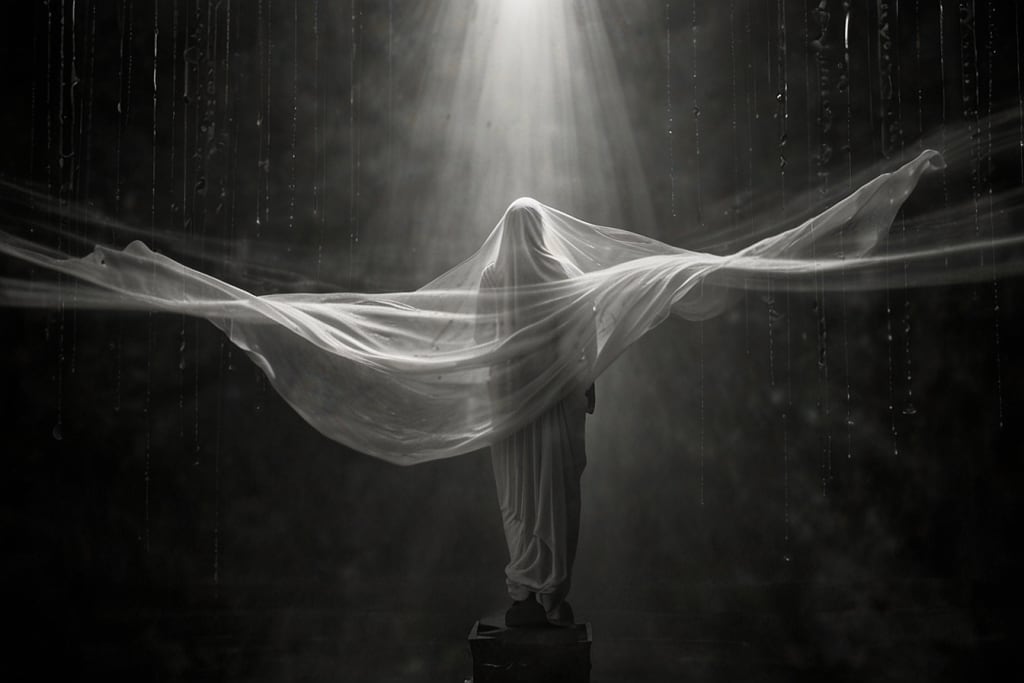
From Humble Birth to Harrowing Death
A journey that started amidst the jubilation of angels and the wonder of shepherds reaches its zenith in a spectacle of sorrow and suffering. The narrative of Jesus Christ, which began at Christmas, finds its critical juncture on the cross of Good Friday. This article ventures into the depths of this pivotal moment, exploring how the disgrace endured by the Saviour relates to the overarching theme of divine sovereignty and the essence of faith itself.
The Climactic Contradiction: Triumph Entwined with Tragedy
The triumphant entry into Jerusalem, heralded by the adulation of the masses, seemed to foretell a cleansing revolution led by the one they called the Messiah. Yet, paradoxically, the one who came to liberate was himself bound, condemned not by the law of righteousness, but by the very world he sought to redeem. The Messiah's path to glory led not to a throne, but to a cross, where he was flanked by criminals and mocked by onlookers. The King of Kings was crowned not with gold, but with thorns, and the inscription above his head served as both accusation and divine declaration.
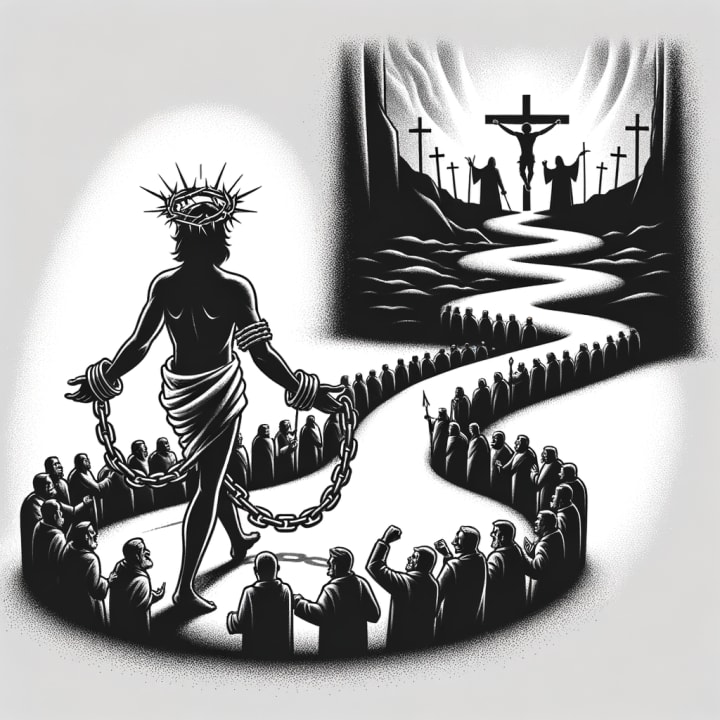
The Unyielding Watch: A Guard Against the Hope of the World
As Jesus hung there, the soldiers cast lots for his meagre earthly possessions, a metaphor for the skewed distribution of fortune among men. They sat watch over a man who posed no threat, for the true peril lay not with the one on the cross, but in the hearts of those who failed to perceive his sovereign identity.
Divine Irony: The World's Mockery and Heaven's Testimony
The very nature of Jesus’ crucifixion, the inscription of 'King of the Jews' above his head, was a testament to a greater truth that transcended the mockery. The declaration, legible in the tongues of many nations, revealed that the man who hung there was not merely a Jewish messiah but the universal sovereign, reconciling heaven and earth, even as he suffered the ultimate alienation from the Father.
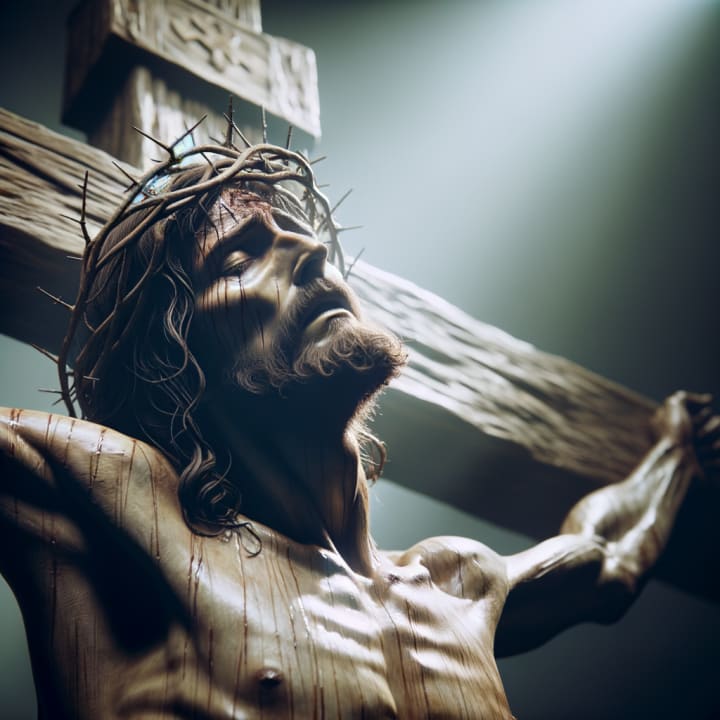
The Darkness of Sin and the Light of Salvation
As darkness enveloped the land, Jesus' cry of abandonment echoed the profound separation from God that sin engenders. At this moment of deepest despair, the atonement for humanity's transgression was being wrought. The divine narrative does not shy away from this paradox—the immortal God experiencing mortality, the source of life tasting death—to offer salvation to all.

The Veil is Torn: Access to the Divine Granted
The rending of the temple veil at the moment of Jesus' death signified the shattering of barriers between the divine and the mortal. A new covenant was being established, one built not on the shifting sands of human effort but on the solid rock of divine grace. The earthquake that followed was a testament to the cosmic significance of this event, a signal of creation itself groaning in the birth pangs of redemption.
The Centurion's Confession: A Gentile’s Recognition of Sovereignty
In an ultimate twist, it was a Roman centurion, a representative of the world's mightiest empire and a Gentile, who first acknowledged the truth of Jesus' divine sonship. This unwitting confession, born from the awe of the supernatural occurrence, has echoed through the ages, becoming a cornerstone of Christian faith.
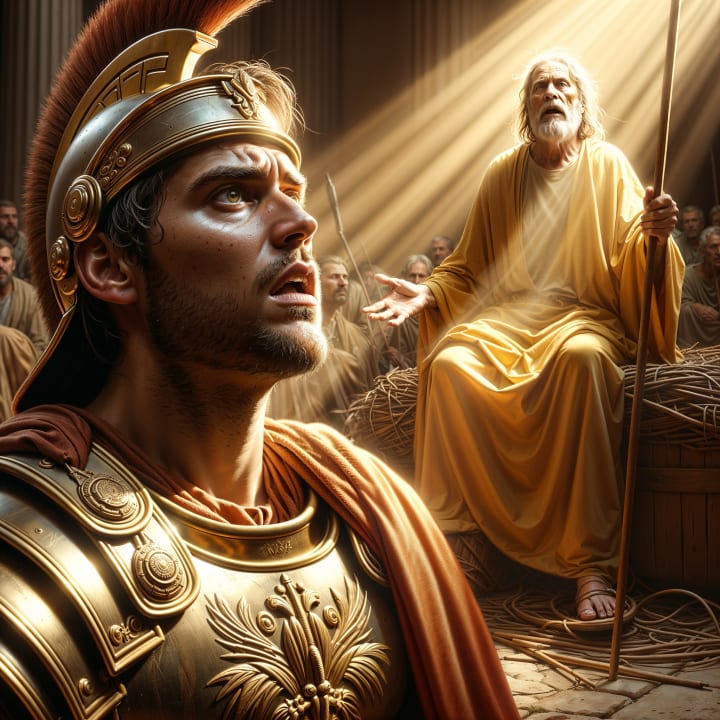
The Unseen Victory
As we reflect upon the events of Good Friday, let us not be swayed by the outward appearance of defeat. For in the shadow of the cross, we find the light of salvation. This is not a call for mourning but a summons to marvel at the lengths to which divine love will go. It is a reminder that in the greatest act of surrender, the most profound victory was secured.
We stand at the foot of the cross, not as spectators of defeat, but as heirs of triumph. We are invited to partake in the inheritance of grace, to live in the reality of the torn veil, and to walk in the freedom won by the King who wore a crown of thorns. Let our response not be one of dismay but of awe, for the story does not end in the silence of the tomb but in the triumph of the resurrection.
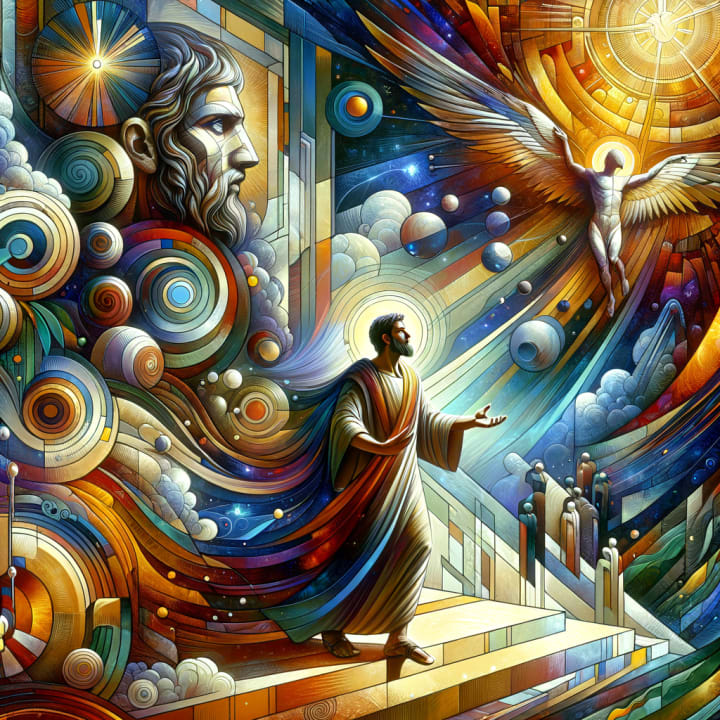
The call to action is clear: embrace the new covenant, step into the light that shines forth from the darkest day, and carry the message of the cross, the power of God, into a world still shrouded in shadows.
In closing, let this day be marked not by the gravity of loss but by the gravity of love. For it is in the cross that we see the heart of the divine laid bare, a heart that beats with relentless love for humanity. In the stillness of reflection, let us whisper in reverent wonder, "Surely, this was the Son of God.
Amen.






Comments
There are no comments for this story
Be the first to respond and start the conversation.